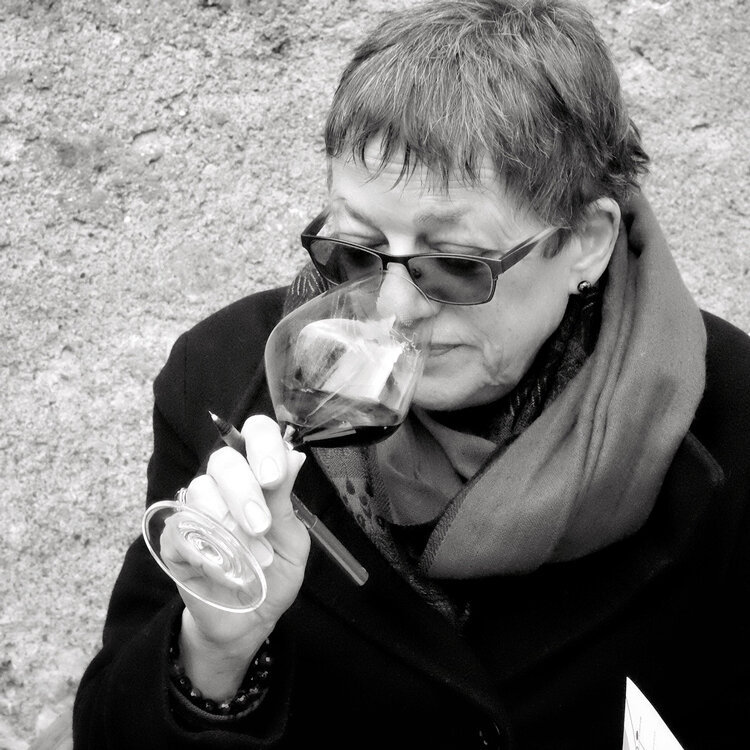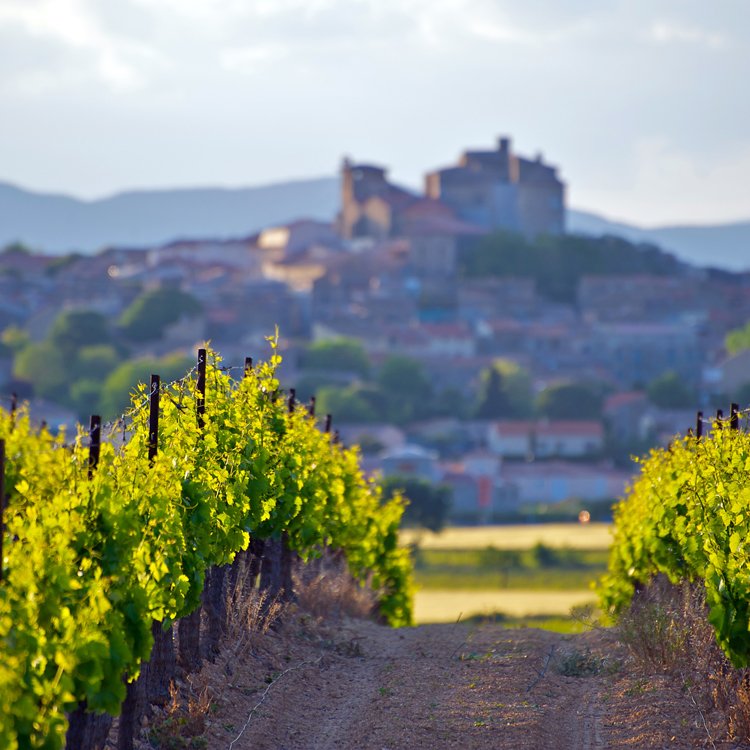▻ The Languedoc with Rosemary George MW
In conversation with Rosemary George MW
Episode Summary:-
Rosemary George MW is an authority on the wines of Southern France and author of Wines of the Languedoc, published by the Infinite Classic Wine Library. In this episode, she talks to Sarah Kemp about the region she believes has evolved most in the past 20 years. “20-30 years ago people didn’t know the Languedoc very well, it had a reputation for mass-produced cheap wine, nothing much of quality, the appellations were just getting going,” she says.
““The Languedoc has original flavours, quite accessible, spicy fruit, and supple tannins. It’s versatile, reasonably good value and you drink for pleasure, you don’t have to think about them too much – it’s sunshine in a glass.” ”
Rosemary discusses how most major wine regions have a river running through facilitating access to other markets but Languedoc doesn’t, so historically one of Languedoc’s major problems was communication, as it was quite isolated both geographically and politically. While the sweet wines had some reputation, the red wines were not considered of good quality. The appellation system was late in getting going, Fitou was recognised in 1948 but Corbières and Minervois did not become appellations until 1985.
The appellations of Cabardès and Malparès are where the Bordeaux grape varieties are allowed, Rosemary explains, as she describes the characteristics of Languedoc’s main appellations: Limoux (best known for its sparkling wine), Corbières (the largest appellation, with very varied terroir), Fitou, Minervois, St Chinian and Faugères where you find a seemingly endless diversity of blends. La Clape is particularly good for white wine, Rosemary notes, with Bourboulenc the major white grape, and Picpoul de Pinet, the most well-known appellation.
Sarah asks which appellations she finds the most exciting. Faugères, Terrasses du Larzac and La Clape for whites, she replies. Terrasses du Larzac is up in the hills producing wines of freshness, “no longer the wines of the 1990s, when they were looking for weight and extraction.” La Clape makes wonderful mineral-driven white wines, and Faugères has wines of huge character. Rosemary then picks out the star producers from the appellations (see list below)
In the past, co-operatives dominated wine production in the Languedoc, but they are now on the wane. Rosemary discusses the importance of co-operatives: “The good co-op is actually aware that it is very much part of the local economy,” and she cites the co-operatives wine lovers should look out for. There are also many newcomers to the region, as the land is less expensive and there are many opportunities to experiment. Sarah and Rosemary discuss the resentment from some of the locals of the “hobbyist famers” but acknowledge that the incomers can be positive, with new ideas and investment to upgrade quality. Sarah is curious as to whether there are any leading personalities who are helping the image of the Languedoc. Rosemary sites Gerard Betrand for today, and Aimé Guibert in the 1980s.
Picpoul de Pinet has been hugely successful on the UK market. Rosemary tells how a Tesco “Finest” Picpoul de Pinet won the top prize in the Top 100 Languedoc tasting 15 years ago, and how this catapulted the region to success. “The charm of Picpoul is that it is an easy, undemanding drink that has character, good Picpoul has saltiness, nice freshness and it’s dry but not too dry.”
The question of climate change has become a constant in vineyards and therefore on The Wine Conversation, and Rosemary sees the main threat in the region as frost and the irregularity of rainfall. “They haven’t had serious rain since November,” she relates. As elsewhere in Europe, it is the chaotic, unpredictable weather patterns that are causing most of the concern.
Sarah asks Rosemary if there are any world-class wines or potential world-class wines coming out of the Languedoc. She explains that longevity usually plays a part in a world-class wine’s reputation, and there are very few estates in the Languedoc which are 2nd or 3rd generation. However, she cites as Mas du Dumas Gassac, Prieuré de Saint Jean de Bébian and Gerard Bertrand as all having world-class ambitions.
The biggest challenge for the region is marketing, or lack of it. While there are many very good estates, distribution remains a problem. In Britain, The Wine Society has a good selection as does Stone Vine and Sun, the independent UK merchant.
So, in the end, what should you expect from the region? “The Languedoc has original flavours, quite accessible, spicy fruit, and supple tannins. It’s versatile, reasonably good value and you drink for pleasure, you don’t have to think about them too much – it’s sunshine in a glass.”
Running Order:-
-
0.00 – 10.15
“This region has evolved most in the past 20 years.”
– The history of the Languedoc and its appellations.
– A guide to the appellations of the Languedoc.
– The grapes of the Languedoc. -
10.16 – 21.18
“All good co-operatives are aware that it is very much an important part of the local economy.”
– Rosemary names her three most exciting appellations; Faugères, Terrasses du Larzac and La Clape.
– Rosemary’s recommended producers by appellation.
– The role of the co-operative in the region.
– The influx of newcomers buying up land in the region.
– The most recognisable faces - Gerard Bertrand and the late Aimé Guibert. -
21.19 – 31.57
“Good Picpoul has nice saltiness, nice freshness, it’s dry but not too dry.”
– How Picpoul de Pinet became popular.
– Climate change issues in the region.
– Does the Languedoc have the possibility to make world-class wine?
– Why the main challenge is marketing and distribution.
– The flavours you can expect in your wine.
RELATED POSTS
Keep up with our adventures in wine
Further reading:-
Wines of the Languedoc by Rosemary George MW, The Infinite Ideas Classic Wine Library
Recommended producers:-
Faugères
Ollier Taillefer
Mas d’Alezon
Domaine de Cébène
Mas Lou
Domaine des Trinités
Terrasses du Larzac
Mas Jullien
Clos du Serres
Domaine du Pas de L’Escalette
Limoux
Château d’Anglès
Minervois
Clos Centeilles
Domaine Anne Gros
La Clape
Château d’Anglès
Château Rouquette-Sur-Mer
Picpoul de Pinet
Domaine Félines-Jourdan
Château St Martin de la Garrigue
Pézanas
Mas Gabriel
Prieuré St Jean de Bébian








Brian St Pierre takes a look at the latest crop of wine books, and picks out the ones he believes should be on every wine lover’s shelf